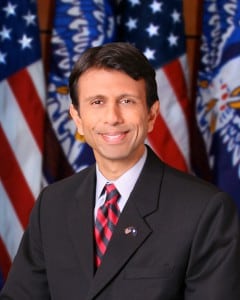
Louisiana governor and possible 2016 presidential candidate Bobby Jindal (R) released a report on Monday slamming the Obama administration for cutting defense spending too steeply and outlining ideas to more adequately fund the Pentagon while ensuring fiscal accountability. In the report, Rebuilding the American Defense Consensus, Jindal and co-author former-Sen. Jim Talent (R-Mo.) argue that in the short-term, Congress and the administration need to find a way to fully fund military readiness accounts, as America's servicemen and women deserve nothing…












